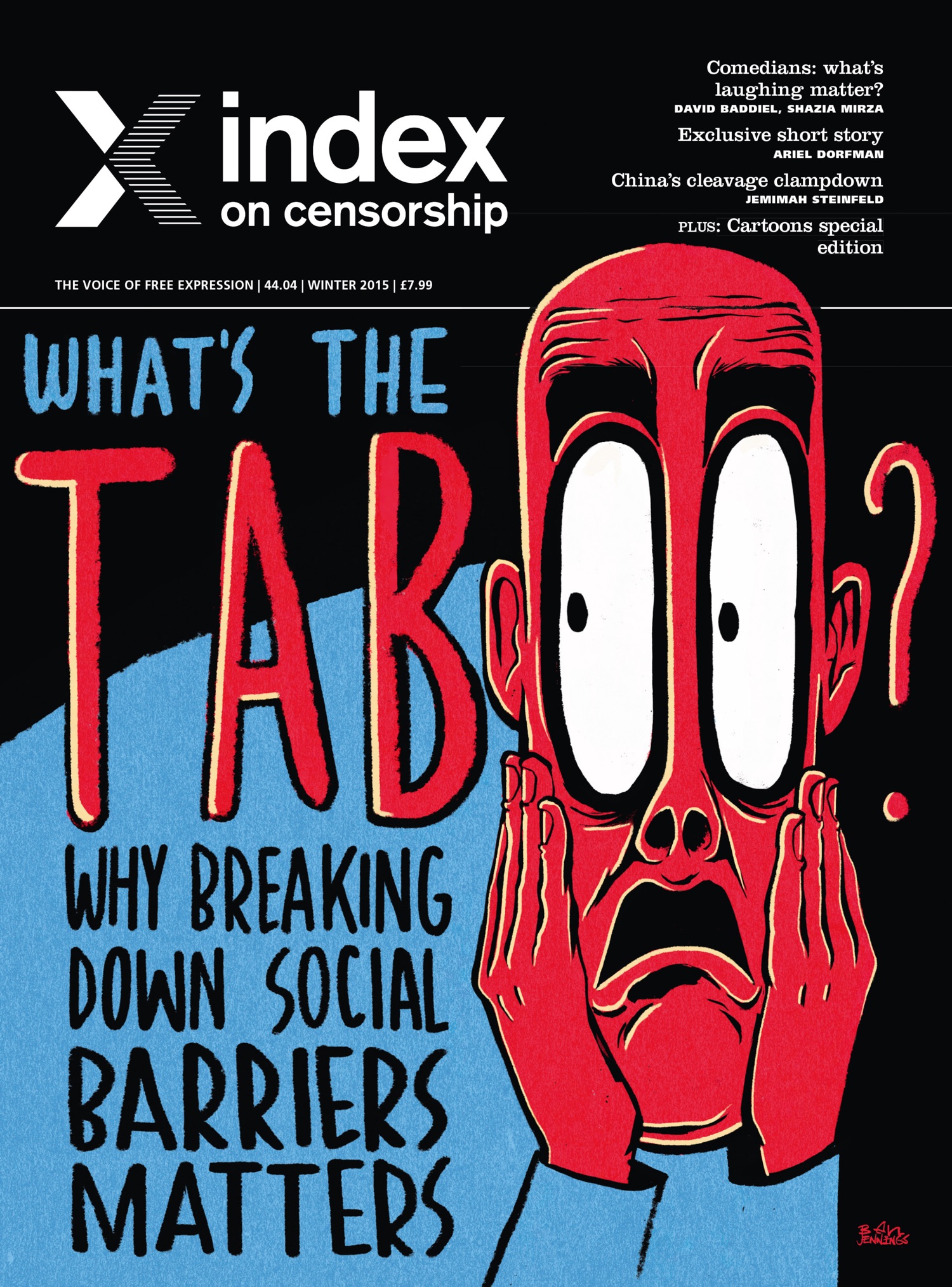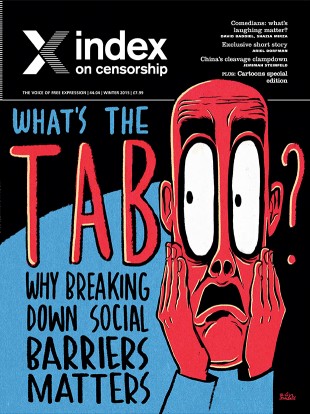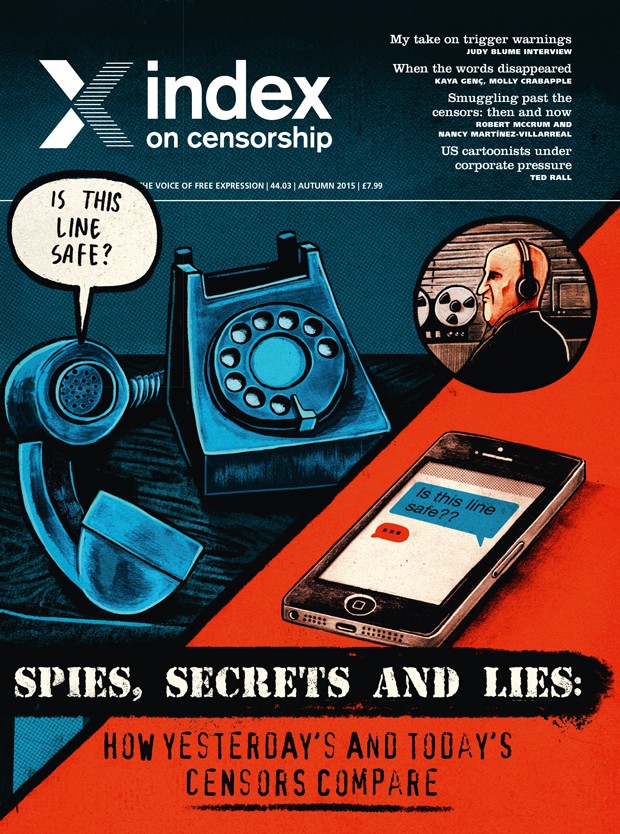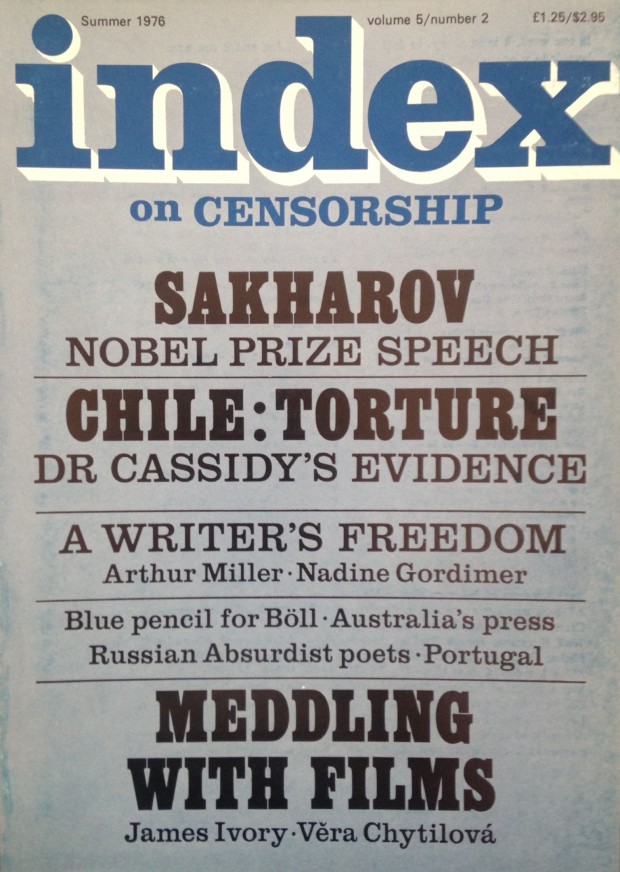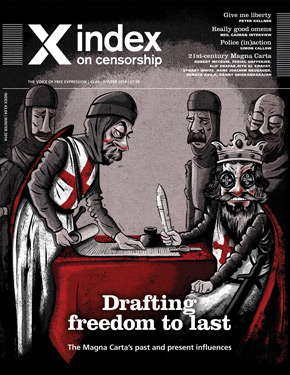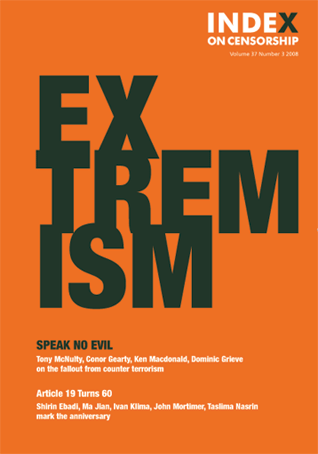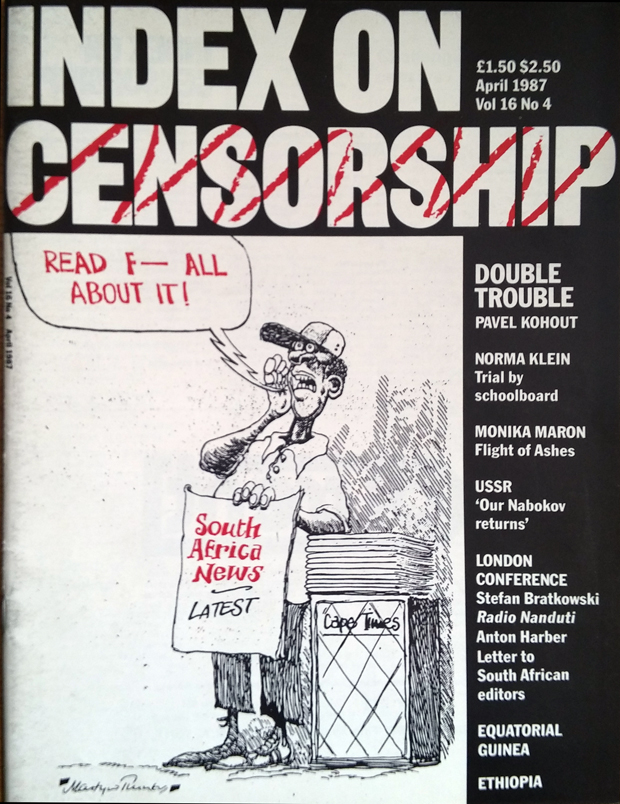Societies often endanger lives by creating taboos, rather than letting citizens openly discuss stigmas and beliefs
CATEGORY: Magazine
What’s the taboo?
Throughout history, taboos have been established to limit and control society, and help to retain a status quo. “Best not mention it” is the nodded instruction to put something off limits in the family living room. In the 20th century, in the UK, societal disapproval would be rained down on those who ate something other than fish on Fridays, or children who played outside on a Sunday, or an adult who didn’t wear a hat to church. And in the US today the Westboro Baptist Church tells its female followers that it is forbidden for them to cut their hair. But why? Who decided these were the rules, and how do they change?
What’s the taboo? Winter magazine 2015/16
What’s taboo today? It might depend where you live, your culture, your religion, or who you’re talking to. The latest issue of Index on Censorship magazine explores worldwide taboos in all their guises, and why they matter.
Taboos: What are yours?
Are there things that you just aren’t allowed to talk about at family gatherings over the holiday period?
Student reading lists: Music and censorship
To mark the launch of the Music In Exile Fund, Index on Censorship has compiled a reading list of articles that have appeared in the magazine since 1982 and deal with censorship and music
From murder to bureaucratic mayhem: After Argentina’s dictatorship, what happened next for the country’s journalists
Argentina’s press freedom has come a long way since its junta sought to silence criticism by killing journalists. But is it free of censorship?
Arthur Miller’s centenary: a reading list from our archives
US playwright Arthur Miller, author of Death of a Salesman and The Crucible, was born 100 years ago on Saturday 17 October
Spies, Secrets and Lies: Index magazine launch at the Frontline Club
Are the challenges of censorship, subterfuge and propaganda greater or lesser than they were in previous decades? Who are modern technological...
Thoughts policed: Max Wind-Cowie
Have we created a media culture where politicians fear voicing an opinion that’s not the party line? Max Wind-Cowie reports
The politics of terror: Conor Gearty
In the drive to tackle extremism, debate is being undermined and fear is driving the agenda. Conor Gearty makes the case for common sense.
Future imperfect: Jason DaPonte
Should concerns about privacy after the NSA revelations change the way we use the web? Jason DaPonte asks the experts about state spying, corporate control and what we can do to protect ourselves
My book and the school library: Norma Klein
Norma Klein, the American writer of children’s books, describes how she successfully defended her Confessions of an Only Child before a school board meeting
A quarterly journal set up in 1972, Index on Censorship magazine has published oppressed writers and refused to be silenced across hundreds of issues.
The brainchild of the poet Stephen Spender, and translator Michael Scammell, the magazine’s very first issue included a never-before-published poem, written while serving a sentence in a labour camp, by the Soviet dissident Aleksandr Solzhenitsyn, who went on to win a Nobel prize later that year.
The magazine continued to be a thorn in the side of Soviet censors, but its scope was far wider. From the beginning, Index declared its mission to stand up for free expression as a fundamental human right for people everywhere – it was particularly vocal in its coverage of the oppressive military regimes of southern Europe and Latin America but was also clear that freedom of expression was not only a problem in faraway dictatorships. The winter 1979 issue, for example, reported on a controversy in the United States in which the Public Broadcasting Service had heavily edited a documentary about racism in Britain and then gone to court attempting to prevent screenings of the original version. Learn more.


